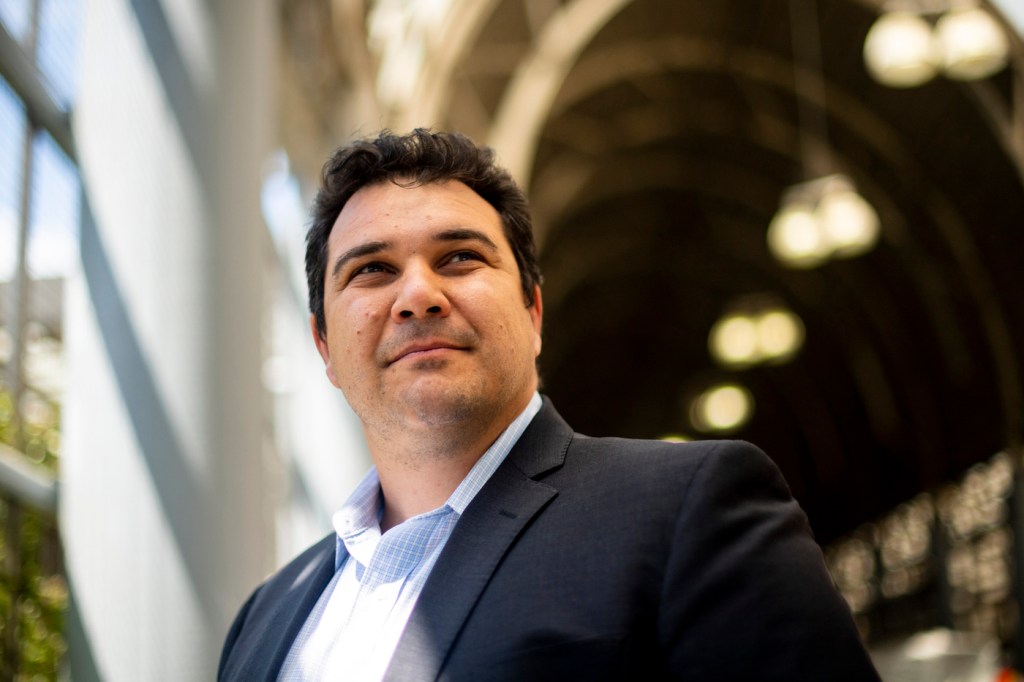Q&A with Khushal Safi: Northeastern’s head of global safety leans on his counterintelligence experience
If you don’t know Khushal Safi by face or name, you’ve experienced his impact. Northeastern’s head of global safety created an advanced security apparatus that keeps students and faculty safe while they’re off campus.

Khushal Safi is always on alert.
Safi, head of global safety at Northeastern, is constantly monitoring situations throughout the world –– wars, viral outbreaks, bombings –– to protect the many traveling students, faculty and staff.
After an extensive, globetrotting career in counterintelligence, Safi joined the university in 2014 and has brought that experience to bear in several ways.
The Global Safety and Support Network forms the foundation of Safi’s advanced security apparatus. Every student, faculty or staff member who travels abroad is required to register with it.
It lets Safi and his team monitor where members of the Northeastern community are, but, more importantly, it allows the Global Safety Office to contact them in emergency situations.
With a network of security and medical professionals on standby, Safi can extract students from an escalating international crisis in Israel or faculty from a military coup in Niger within hours.
What’s the best part of your job?
It’s the point where things just come together because there’s just so much going on. It’s the solution to something that was a difficult situation. It’s that ability to say, wow, this student did register [on the Global Safety and Support Network ] in Israel. We identified the situation was a critical kind of incident, we were able to communicate with the students and all the plans we had built were able to support the students and pull them out.
What’s the most challenging part of your job?
There are so many requirements and things that are out there that people need to understand and comply with. Because we’ve grown so large, it’s hard to get that message out. Part of that is training, and how we train the large amount of people that we have at this institution.
How do we continue to meet them where they’re at, give them the information that’s necessary for them to be in compliance and support their health and safety needs while they’re abroad so they can then focus on what they need to focus on for their research or study?
What’s one thing about your job that would surprise most people?
Most companies, they have pretty standard stuff. [Travel] is a pretty routine event. That’s not something that happens in higher ed. It’s the [faculty] that have a conference they need to go to and it’s in a very high-risk destination. While most Fortune 500 companies don’t operate in Iraq and war zones, faculty members do.
Also, we’re preparing 17- and 18-year-olds to go on programs where most programs are dealing with 24-year-olds to people that are a little older. We do all of it: minor traveling all the way up to your seasoned veteran who might be at or near retirement age and has major medical needs we might need to support.
What’s your proudest career moment or favorite memory from the work you’ve done here?
Our response in Israel is one. [Professor of political science] Bill Miles in Niger is another. Those are the high-profile types of incidents.
But the thing that you can always point back to and say ‘That’s really satisfying that worked out’ is the beginning of a program where students first arrive. Like, they go to Greece, they arrive and they struggle through the first week. We try to put some boundaries around them, but by the time they leave the program, they’ve experienced so many new and different things, challenges they’ve been able to traverse.
Then they come back and they’re like, ‘I didn’t really listen to all the stuff you provided early on, but after the fact we ran into certain situations and were able to navigate the situations, we got the support we needed from your hotline and were able to get that wraparound support.’ That’s really great.
If you had to choose a different profession, what would you do?
I would be a bartender in Bali. I’d just be living on an island, off the beaten path and slinging drinks for expats.
